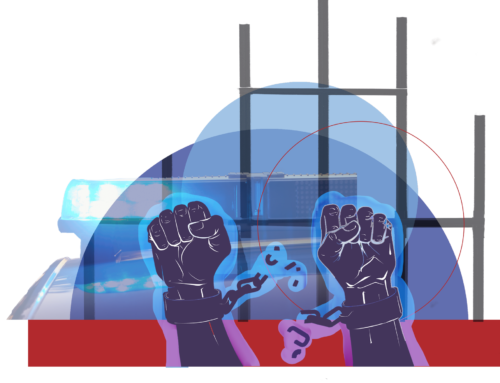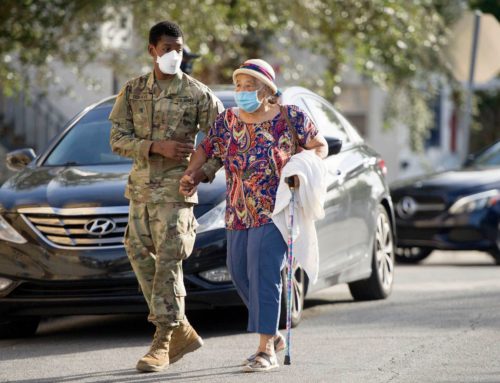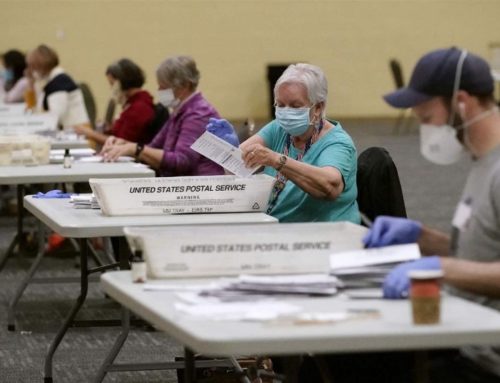As we’ve noted when advocating for more direct federal funding for states and cities, budgets really matter. They are moral documents that outline our priorities. And how you cut budgets in tough times matters too.
State and local governments stand to lose millions of dollars in revenue as a result of the shutdown of businesses and organizations caused by COVID-19 — and that’s not even taking into consideration the additional costs this pandemic has added to their budgets, like hiring contact tracers. With less flexibility to respond to the economic downturn compared to the federal government, declines in state and local tax revenues will be met with layoffs, furloughs, program and service cuts, delayed infrastructure projects, and possible tax and fee increases.
As officials begin the process of trimming their budgets, reducing services, and furloughing employees, they must do so with the careful application of a racial equity lens or they may only worsen the inequities that this pandemic has laid bare.
A recent survey of leaders from 2,400 cities for the U.S. Conference of Mayors and National League of Cities noted that nearly 9 in 10 cities expect budget shortfalls due to the economic impact of the COVID-19 pandemic.
Communities across the South are on the front lines in grappling with how to address budgets that are in shambles. Nashville Mayor John Cooper recently laid out a proposed “crisis budget” with a 32% property tax hike to address an expected revenue loss of $470 million. El Paso’s City Council voted to cut pay and furlough over 400 employees to address a $60 million deficit. Lexington Mayor Linda Gorton unveiled a budget that cuts $12.6 million across local government, including grants to social service and outside agencies, to make up a projected $40 million revenue shortfall.
When making budget cuts the main goal is to balance the budget and make sure the numbers match up. But beyond the numbers, officials should explicitly predict and consider both the intended and unintended consequences on people and communities in order to mitigate those consequences as much as possible.
Some key questions to ask when making equitable decisions are:
-
Who benefits? Who is better off as a result of this decision? How can positive impacts be enhanced? For budget cuts, it may be harder to see positive consequences, but balancing a budget does have benefits for some, or else cuts wouldn’t be necessary.
-
Who is burdened? Who is harmed by this decision? How can negative impacts be reduced? Especially with budget cuts, some degree of harm may be unavoidable, but officials should strive to ensure that burden is not disproportionately shouldered by groups that are already vulnerable or marginalized.
-
Who is missing? Have the consequences for a particular group been overlooked? Who has been underrepresented or left out of the process? Does everyone impacted by the decision have a voice? Government is ultimately accountable to all people in a community, not just the most visible or the most vocal groups.
-
How do we know? What does the data say? Are there gaps in our knowledge? Data should be used to inform budget cuts — as through an evaluation of existing program data – and to track the results of those cuts to see if they’ve disproportionately impacted certain groups.
State and local officials should consider adopting a racial equity tool or conducting racial impact assessments to operationalize equity and guide them in assessing and evaluating budget cuts so they don’t unduly injure under-served and marginalized individuals and communities. Allowing equity instruments like these to transform the decision-making process can build community capacity, foster meaningful engagement and genuine participation, and result in service delivery that better represents communities’ needs and priorities.
Everyone benefits from a more just, equitable system. Racial equity develops outcomes that will result in improvements for all groups, although the strategies may be targeted based on the needs of a particular group. The bottom line is that budget cuts will only be fair if equity is called out and openly considered.
We are seeing firsthand through COVID-19 how underlying inequities have devastating consequences. As a society we need keep our eyes open to those inequities going forward, and we can do that by calling out for equitable budget decisions that closes the gaps between us rather than widening them.




